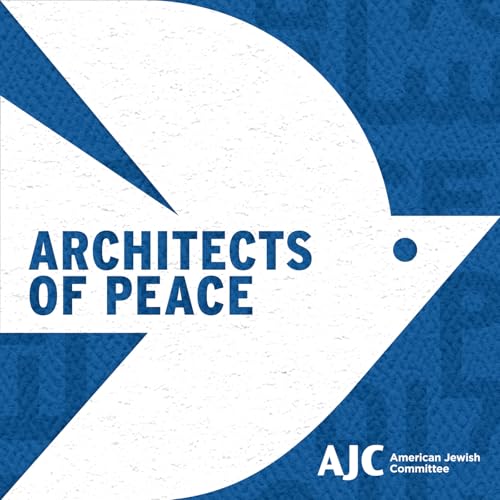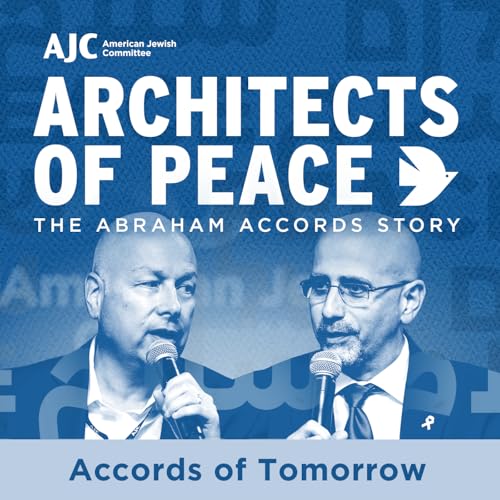Architects of Peace, a limited podcast series by the award-winning team behind American Jewish Committee's People of the Pod and The Forgotten Exodus podcasts, unpacks the high-stakes diplomacy and behind-the-scenes negotiations that led to the creation of the Abraham Accords five years ago.
As the global advocacy organization for the Jewish people, AJC began laying the foundation for the possibility of the Accords — which normalized relations between Israel, the United Arab Emirates, Bahrain, and Morocco — more than 70 years ago. AJC's efforts in the region continue to this day through AJC's Center for a New Middle East, which builds support for expanding the circle of peace.
The series premieres August 28, 2025.
New episodes will be released weekly. Subscribe wherever you listen to your favorite podcasts.
Show Notes:
AJC.org/Podcasts
Theme song credit: Pond5; Eric Sutherland, ID#279780040
Transcript:
Manya Brachear Pashman:
It seemed to come out of nowhere.
But to a select few, including American Jewish Committee, it was of no surprise.
In September 2020, the world saw what had been years in the making:
The Abraham Accords — landmark peace agreements normalizing relations between Israel, the United Arab Emirates, Bahrain, and later Morocco — brokered with quiet urgency by a small team of dealmakers.
David Friedman:
"The secrecy here was very, very important. To be honest with you, I think anything bigger than that group of six or seven would have put it in jeopardy."
Manya Brachear Pashman:
Who built the trust behind the scenes?
What risks did they take to get it done?
Can the agreements weather today's challenges — and expand the circle of peace in the region? And how did they come up with that name?
Ted Deutch:
"I hope that we're able to just spend a moment thinking about what's been achieved… Not just for Israel, but for the region, in the best interest of the United States and, in so doing, ultimately, for the world."
Manya Brachear Pashman:
Architects of Peace — a limited podcast series from American Jewish Committee — pulls back the curtain on the diplomacy, ambition, and inspiring stories behind the Abraham Accords. Starting August 28: Listen wherever you get your podcasts.
 2025/11/2634 分
2025/11/2634 分 2025/10/0133 分
2025/10/0133 分 2025/09/1931 分
2025/09/1931 分 2025/09/1022 分
2025/09/1022 分 2025/09/0422 分
2025/09/0422 分 2025/08/2822 分
2025/08/2822 分 1 分
1 分
